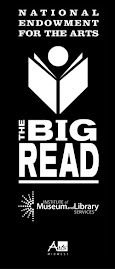One of Zora Neale Hurston's stand out moments and entrances was her 1925 announcement of the 2nd place prize for her play at the
Opportunity magazine awards party. She flung a colored scarf around her neck and with great drama bellowed "Colooooooor Struuckkk!"
Hurston's work reveals a deep awareness of colorism within the African American community. In the play "Color Struck" Hurston's main character, Emma, a dark-skinned woman "so despises her own skin that she can't believe any one else could love it," according to one of the characters.
Each month, Busboys and Poets is the setting for a continuing talk on race or
A.C.T.O.R. Pamela Pinnock has been organizing these dialogues and this
Sunday, May 6th from 4 pm until 6 pm (Busboys and Poets, 2021 14th Street, NW) A.C.T.O.R. is exploring
colorism.
The A.C.T.O.R. discussion will use
Their Eyes Were Watching God as the framework for a series of small group discussions around the following questions:
1. What is the experience of Hurston's pivitol character -- Janie -- as it relates to her skin-color?
2. What is your own experience as it relates to skin color?
3. How do issues of race an skin color play out in today's society?
Ah just couldn't see mahself married to no black man. It's too many black folks already. We ought to lighten up the race.—From "Their Eyes Were Watching God"
Colorism within the African American community makes use of the degree of blackness or whiteness to assign privileges says David Krasner in
Migration, Fragmentation, and Identity: Zora Neale Hurston's Color Struck and the Geography of the Harlem Renaissance published in
S&F Online, a publication of the Barnard Center for Reserach on Women (Zora's NY alma mater).
Filmmaker Kathe Sandler explores "color consciousness" in her documentary
A Question of Color which will be shown at
Busboys and Poets May 5th at 11 pm, the night before the A.C.T.O.R. discussion as part of the In Focus! films for D.C.'s Big Read.
Hurston/Wright Foundation founder and author Marita Golden explores it in her book
Don't Play In the Sun:
There are so many words to describe African-Americans' pernicious, persistent dirty little secret— colorism, color-conscious, color-struck, color complex. And then there are the more specific descriptive terms that separate Blacks and create castes, and cliques, and that are ultimately definitions not of color but of culturally defined beauty and ugliness and that can end up distributing everything from power, to wealth, to love. High yellow, high yalla, saffron, octoroon, quadroon, redbone, light brown, black as tar, coal, blue-veined, café au lait, pinkie, blue-black.
How does
colorism translate or play in non-African American communities?









